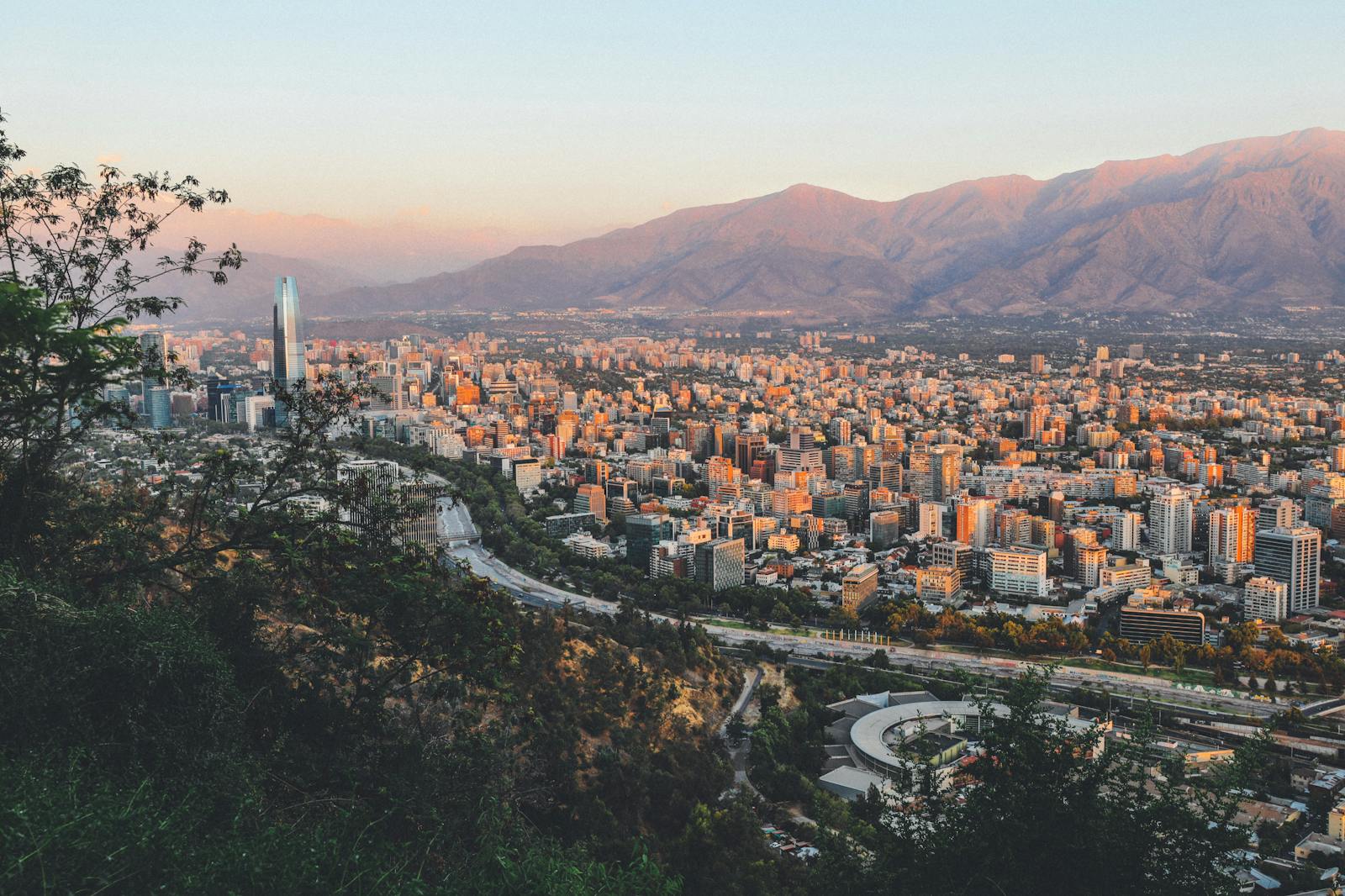Chile Travel Safety: What You Need to Know
When planning a trip to Chile, it is important to be aware of the safety considerations to ensure a smooth and enjoyable experience. While Chile is generally a safe country to travel to, there are a few things to keep in mind to ensure your safety and security.
Pickpocketing and petty theft are the main safety concerns for tourists in Chile. It is advisable to take precautions such as keeping your valuables secure, avoiding displaying expensive items, and being vigilant in crowded areas. By staying aware of your surroundings and taking necessary precautions, you can minimize the risk of falling victim to these crimes.
It is also important to exercise caution when traveling at night, especially in unfamiliar areas. Stick to well-lit and populated areas and consider using reputable transportation options. By taking these extra precautions, you can ensure your safety while enjoying Chile’s vibrant nightlife.
When driving in Chile, it is important to be aware of the diverse landscapes and varying road conditions. While driving is generally safer in Chile compared to its neighboring countries, it is still advisable to be cautious and prepared. Familiarize yourself with local driving regulations, ensure your vehicle is in good condition, and be mindful of potential hazards on the road.
In terms of natural disasters, Chile is prone to earthquakes and the resulting tsunamis. It is important to stay informed about any potential risks and follow the guidance of local authorities. Additionally, Chile has active volcanoes, so it is important to be aware of any volcanic activity and follow official recommendations in case of an eruption.
Despite these safety considerations, Chile remains a popular and safe travel destination. The country boasts clean cities, good infrastructure, and a low level of corruption. Chileans are known for their patience and encouragement towards foreigners attempting to speak Spanish, making it a welcoming destination for travelers.
Travel Considerations
Entry Rules and Regulations
When planning a trip to Chile, it is essential to familiarize yourself with the entry rules and regulations to ensure a smooth and hassle-free experience. Here are some important points to consider before traveling to Chile:
- Visa Requirements: Before traveling to Chile, it is recommended to check with the nearest Embassy or Consulate of Chile to confirm if you need a visa. Entry and exit conditions can change at short notice, so it is crucial to stay updated with the latest details. If your travel includes a transit in Chile, make sure to inquire about any visa requirements for transit passengers as well.
- Dual Citizenship: If you are a dual citizen of both Australia and Chile and entered the country using a Chilean passport, it is important to note that the Chilean Government may not recognize your Australian citizenship. This can have implications on your access to consular help and entry or exit requirements. Prior to your trip, it is advisable to check your citizenship status and any associated requirements with an Embassy or Consulate of Chile.
- Illegal Drugs: It is strictly prohibited to use or carry illegal drugs in Chile. The country has severe penalties for drug offenses, including long prison sentences. Travelers are advised to adhere to local laws and regulations to avoid any legal complications.
- Cash Payment for Treatment: In some instances, medical facilities in Chile may require cash payment before providing treatment. It is recommended to be prepared for such situations and carry sufficient cash or ensure you have access to payment methods accepted by local healthcare providers.
It is always advisable to stay informed about the local laws and regulations of the country you are visiting. By understanding and complying with the entry rules and regulations of Chile, you can ensure a safe and enjoyable trip. Remember to stay updated with the latest travel advice from official sources and make necessary arrangements in advance to have a smooth entry into the country.
![aerial photo of city buildings]](https://geographies.gr/wp-content/uploads/5w8fdb8f89s-1024x683.jpg)
Consular Services
When traveling to Chile, it is important to be aware of the consular services available to you as a foreign visitor. The consular services provided by your home country’s embassy or consulate can be crucial in times of emergency or need.
For Australian travelers, the Australian Embassy in Santiago de Chile is the main point of contact for consular assistance. They provide a range of services aimed at ensuring the welfare and safety of Australian citizens.
In case of a consular emergency, such as a serious accident or arrest, and if you are unable to contact the embassy directly, you can reach out to the 24-hour Consular Emergency Centre. This emergency hotline is available both from overseas by dialing +61 2 6261 3305, and within Australia by dialing 1300 555 135.
The Consular Services Charter outlines what the Australian Government can and cannot do to assist you while you are overseas. It is important to familiarize yourself with the charter to understand the extent of support that can be provided.
However, it is essential to note that consular services have their limitations. While the embassy can offer assistance, they cannot get you out of trouble or out of jail. It is crucial to abide by the local laws and regulations, as you are subject to all local laws and penalties. Familiarize yourself with the local laws before traveling to ensure you stay within legal boundaries.
In addition to consular services, it is also important to consider other aspects of travel to Chile. Healthcare is an essential aspect, and it is important to note that cash payment is generally required before receiving medical treatment, even in emergencies. It is also advisable to have adequate travel insurance coverage to ensure financial assistance in case of any medical emergencies.
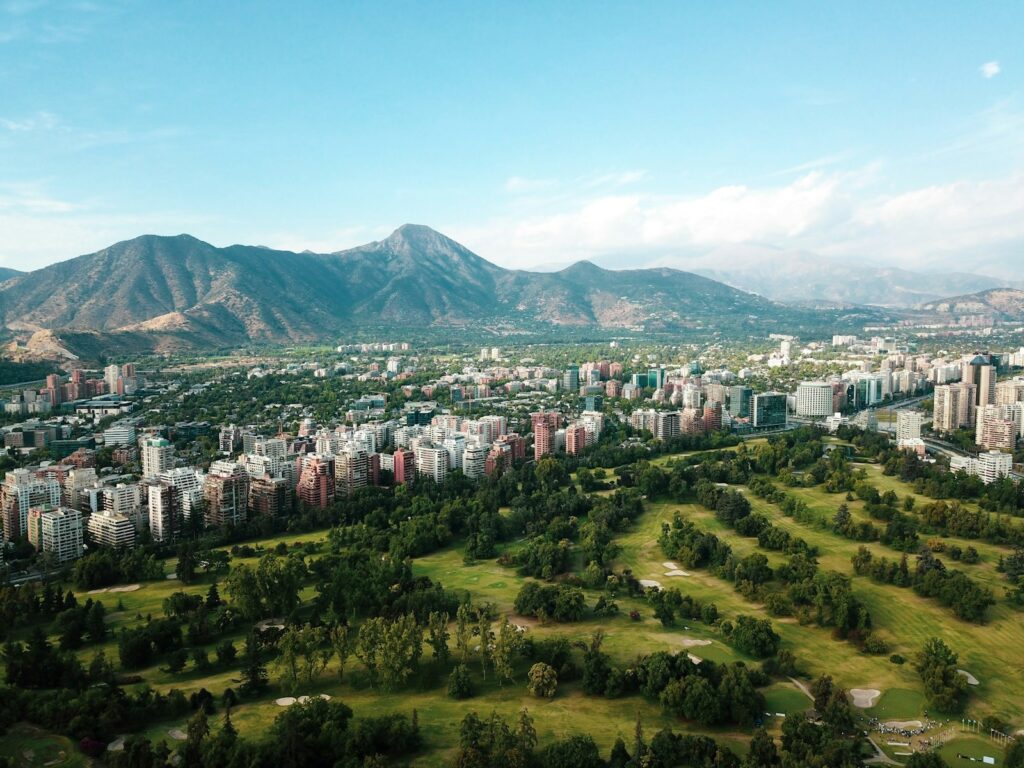
Travel Insurance
When planning a trip to Chile, it’s important to prioritize your safety and well-being. One way to ensure that you are protected from unforeseen circumstances is by purchasing travel insurance. No matter how healthy and fit you are, accidents and emergencies can happen, and having the right insurance coverage can provide peace of mind.
Travel insurance is essential for all travelers, as it can protect you from a wide range of potential risks. From theft and medical emergencies to trip cancellations and delays, a comprehensive travel insurance policy will have you covered. It is crucial to choose a policy that covers all your overseas medical costs, including medical evacuation, as the Australian Government does not provide coverage for these expenses.
Before you leave for your trip, make sure to carefully review your policy and understand what activities and care it covers. Additionally, confirm that your insurance coverage extends for the entire duration of your trip. This will ensure that you are adequately protected throughout your stay in Chile.
In Chile, there have been instances of car tire scams and incidents of flooding. These unexpected events can quickly turn your trip into a nightmare. However, with travel insurance, you can rest assured that you are financially protected against theft, vehicle damage, and any additional expenses incurred due to natural disasters or emergencies.
When selecting a travel insurance provider, it is important to choose a reputable company that offers reliable service and value for money. Nomadic Matt recommends SafetyWing for travelers under 70 and Insure My Trip for travelers over 70. These companies have proven track records in providing comprehensive coverage and excellent customer service.
Remember, if you can’t afford travel insurance, you can’t afford to travel. The costs associated with medical care and emergency situations can be astronomical, and without insurance, you may be responsible for paying these expenses out of pocket. It is always better to be safe than sorry when it comes to your health and financial well-being.
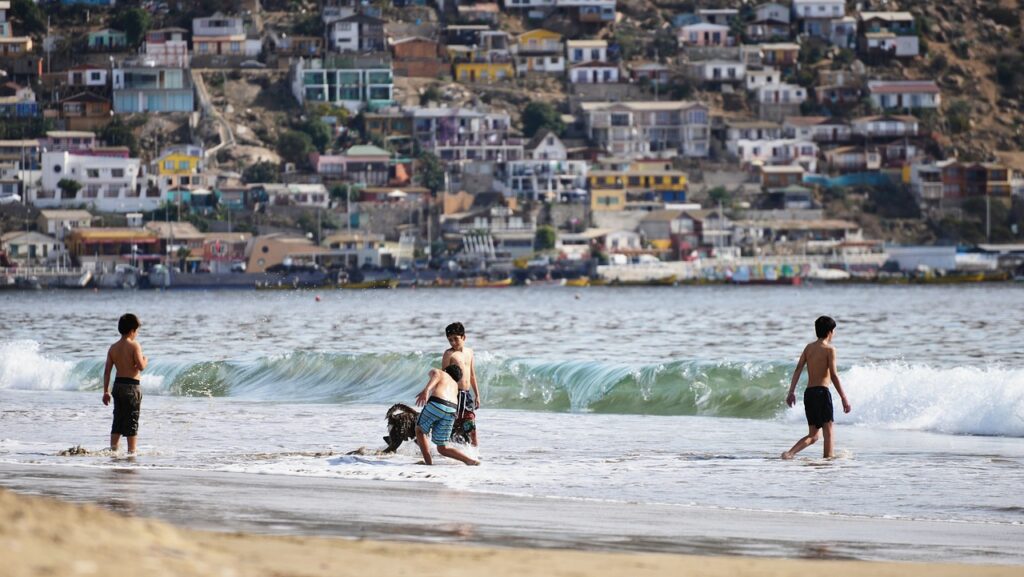
Crime and Safety
Is Chile safe for American tourists?
For U.S. citizens, it is recommended to consult the U.S. Department of State’s country information page for additional guidance and updates regarding safety and security in Chile. It is also a good idea to register with the Smart Traveler Enrollment Program (STEP) to receive important updates and assistance in case of emergencies.
Is Chile safe for female tourists?
Chile is generally considered a safe destination for female tourists. The cities of Santiago and Valparaiso, in particular, have a good level of safety, especially in tourist areas. However, it is important for solo female travelers to take standard precautions to ensure their safety and security.
First and foremost, it is advisable to exercise caution when exploring unfamiliar areas at night. It is best to avoid deserted or poorly lit streets and stick to well-populated and well-lit areas. By being aware of your surroundings and using common sense, you can minimize the risk of becoming a target for petty theft or other crimes.
It is also important to avoid displaying conspicuous wealth, as this can attract unwanted attention. Keep your belongings secure and never leave them unattended, especially in crowded places or public transportation. By taking these simple precautions, you can greatly reduce the likelihood of falling victim to theft or pickpocketing.
When it comes to nightlife, women should be cautious about drink-spiking, especially if they are alone at a bar or club. It is advisable to keep an eye on your drink at all times and be aware of any suspicious behavior. If possible, it is recommended to travel with a friend or a group when going out at night.
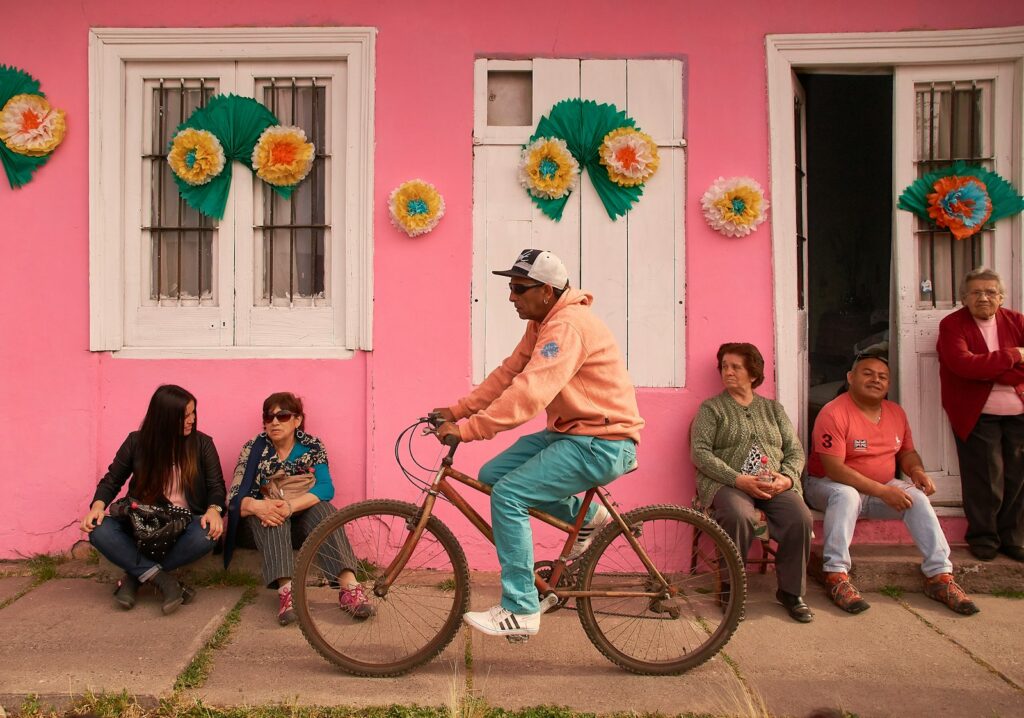
Street Crime
Chile, known for its stunning landscapes and vibrant culture, is a popular tourist destination. However, it is important for visitors to be aware of the street crime situation in the country. Street crime, such as muggings, pick-pocketing, theft, and carjackings, is unfortunately common in Chile, especially in major cities like Santiago, Valparaiso, Viña del Mar, Antofagasta, Calama, and Iquique.
Travelers should exercise significant caution when visiting popular tourist sites like Cerro Santa Lucia, Cerro San Cristobal, Mercado Central, Plaza de Armas, Bellavista, Yungay, Barrio Lastarria, Persa BioBio, Barrio Meiggs, Patronato, Centro Cultural Estación Mapocho, and Los Dominicos in Santiago, as these areas are known to be targeted by criminals.
One of the most important tips for avoiding street crime is to remain vigilant and be aware of your surroundings at all times. Avoid displaying valuable items, such as expensive jewelry or electronic devices, that may attract the attention of thieves. Keep your belongings secure and within sight, especially in crowded areas or public transportation.
Petty Theft
Chile, like many other countries, has its fair share of petty theft incidents, which can put a damper on your travel experience if you’re not prepared. While the overall safety level for solo female travelers in Chile is good, it’s essential to take precautions to avoid becoming a victim of petty theft. Here are some tips to help you protect yourself and your belongings during your visit to Chile.
- Keep Valuables Out of Sight: One of the primary ways to prevent theft is by not drawing attention to your valuable possessions. Avoid flashing expensive jewelry, gadgets, or large sums of money in public. Instead, keep your valuables concealed in a secure bag or hidden pockets.
- Be Mindful of Your Surroundings: Stay alert and aware of your surroundings at all times, especially in crowded areas or places with a reputation for pickpocketing. Thieves often target distracted or unaware tourists, so maintaining a vigilant attitude can deter potential theft attempts.
- Avoid Carrying Excessive Cash: While it’s always good to have some cash on hand for emergencies, carrying excessive amounts can make you a target for theft. Use credit cards or withdraw cash from ATMs inside secure locations, such as bank branches. Additionally, be cautious when using ATMs and check for any signs of tampering, such as skimmers, which can steal your card information.
- Keep Personal Belongings Secure: When dining at restaurants or shopping in stores, make sure that your credit card never leaves your sight. Some restaurants or shops may try to take your card away to process payment, but it’s always best to insist on paying at your table or in your presence. This eliminates any opportunity for your card information to be skimmed.
- Be Cautious with Rental Cars: Vehicular theft targeting rental cars driven by foreigners is a common occurrence in Chile. Thieves often puncture the tires of rental cars, and when the driver gets out to check the flat tire, they seize the opportunity to break into the car and steal valuables. If you suspect a flat tire, never let your wallet out of sight while inspecting it. Be sure to park in well-lit and secure areas whenever possible.
- Avoid Unauthorized Taxis: Some unauthorized taxis in Chile operate as professionals to lure in unsuspecting tourists and overcharge them. To ensure your safety, only use registered taxis or reputable ride-sharing services. If possible, book your transportation in advance or ask for recommendations from trusted sources.
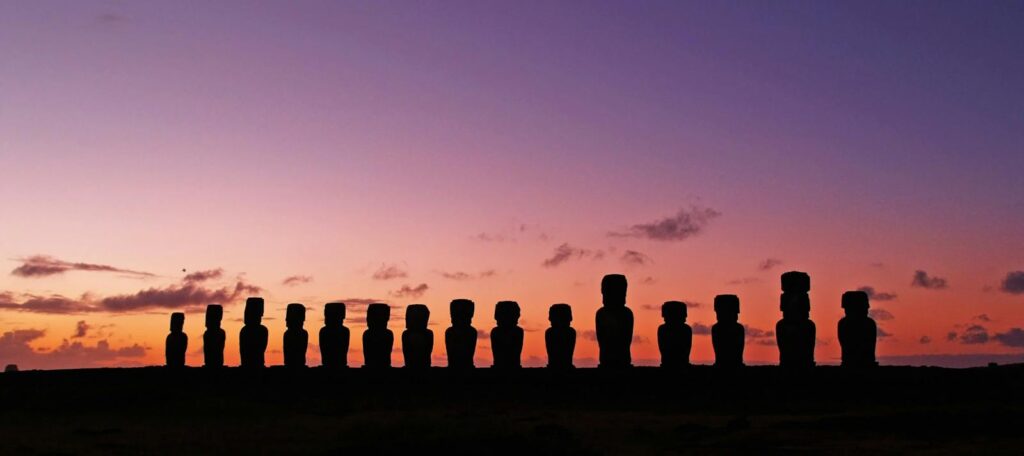
Civil Unrest
The recent period of turmoil, which began in the fall of 2019, shed light on the underlying issues of economic inequality and an unfair constitution that have plagued the nation for decades.
It all started with a seemingly small issue – subway fare increases in the capital city of Santiago. What began as a student protest quickly escalated into a nationwide movement, as Chileans from all walks of life joined in to voice their discontent. The fare increases were merely the catalyst for the frustration that had been building up for years – frustration stemming from a deeply entrenched wealth gap and a political system that seemed to favor the elite.
Underneath the surface of Chile’s natural beauty, there lay a stark reality of economic disparity. Despite being one of the wealthiest nations in Latin America, Chile has one of the highest levels of income inequality in the region. The gap between the rich and the poor has widened over the years, leaving a significant portion of the population struggling to meet their basic needs.
Moreover, the constitution under which Chile has been governed was instated during the military dictatorship of Augusto Pinochet in the 1980s. This constitution, often criticized as undemocratic and lacking in representation, has long been a point of contention for many Chileans. The protests served as a collective demand for a new constitution that would better reflect the values and aspirations of the people.
The response from the authorities was harsh and violent. The crackdown on protesters resulted in several deaths and hundreds of injuries, further fueling the outrage and galvanizing the resolve of the demonstrators. The world watched as Chileans took to the streets, demanding justice, equality, and a true democracy.
Health Considerations
When traveling to Chile, it’s crucial to prioritize your health and well-being by being aware of specific medical advice and considerations. Here are important points to keep in mind to ensure a safe and healthy trip.
Vaccinations: Prior to your trip to Chile, it’s important to check if any vaccinations are required or recommended for your specific travel plans. The Centers for Disease Control and Prevention (CDC) and the World Health Organization (WHO) provide valuable information on necessary vaccinations based on the regions you plan to visit in Chile. Commonly recommended vaccines for travelers to Chile may include hepatitis A, hepatitis B, typhoid, and routine vaccinations such as measles-mumps-rubella (MMR), diphtheria-tetanus-pertussis, varicella (chickenpox), polio, and influenza.
Altitude Sickness: Travelers visiting high-altitude destinations in Chile, such as the Atacama Desert, should be aware of the risk of altitude sickness. Symptoms can include headache, dizziness, nausea, and shortness of breath. To mitigate the effects of altitude sickness, it’s recommended to acclimate gradually, stay well-hydrated, avoid strenuous physical activity initially, and consider medications such as acetazolamide under the guidance of a healthcare professional.
Water and Food Safety: While tap water in Chile’s major cities is generally considered safe for consumption, it’s advisable for visitors to opt for bottled or filtered water to avoid any potential stomach upsets. When it comes to food safety, stick to well-cooked and hot foods, avoid raw vegetables that may have been washed with tap water, and be cautious with street food to prevent gastrointestinal issues.
Medical Facilities and Insurance: Chile offers good medical facilities in urban areas, but access to quality healthcare may be limited in more remote or rural regions. It’s essential for travelers to have comprehensive travel insurance that covers medical expenses, including evacuation or repatriation in case of a medical emergency. Additionally, having a sufficient supply of any prescription medications you require and a basic first-aid kit can be beneficial during your trip.
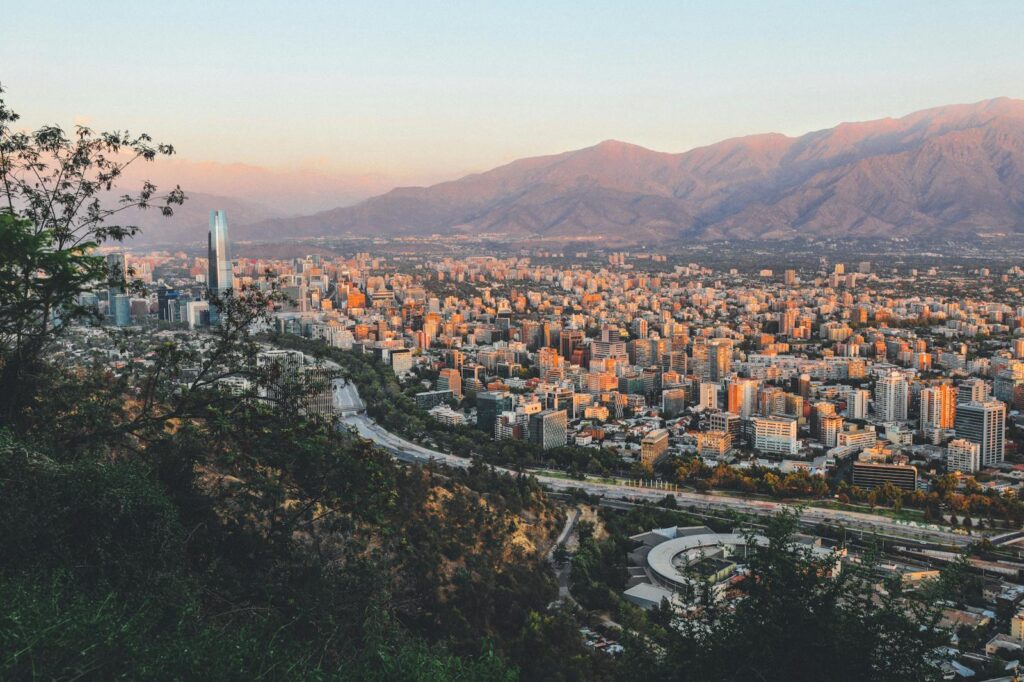
Infectious Diseases
When traveling to Chile, it is important to be aware of the potential infectious diseases that can pose a risk to your health. By taking necessary precautions and following recommended guidelines, you can greatly reduce the chances of falling ill during your trip. Here are some key measures to consider:
- Hepatitis: Hepatitis is a common infectious disease in Chile. All travelers are recommended to receive the hepatitis B vaccination before their trip. It is also crucial to practice safe sex, use sterile drug equipment, and ensure that any tattoos or piercings are obtained in settings that follow proper hygiene regulations.
- COVID-19: In light of the ongoing COVID-19 pandemic, it is essential to stay updated on travel advisories and follow the guidelines set by health authorities. It is strongly recommended that all eligible travelers complete a COVID-19 vaccine series before their journey. Additionally, adhere to recommended preventive measures such as wearing masks, practicing good hand hygiene, and maintaining social distancing.
- Zika Virus and Dengue: Easter Island has experienced outbreaks of the Zika virus and dengue fever. Pregnant women, in particular, should consult with their doctors regarding the risks associated with these diseases before traveling. To minimize the risk of mosquito-borne illnesses, ensure that your accommodation is insect-proof and use insect repellent. Wearing long, loose, light-colored clothing can also offer additional protection.
- Waterborne and Foodborne Diseases: Waterborne and foodborne diseases can occur in Chile, so it is important to take precautions to avoid them. Drink boiled or bottled water with sealed lids and avoid consuming ice cubes or raw and undercooked food, such as salads. It is also advisable to maintain good personal hygiene and cleanliness practices during your trip.
- Rabies: Rabies is another infectious disease present in Chile. Avoid contact with dogs and other mammals, and if you are bitten or scratched by an animal, seek immediate medical assistance. Vaccination against rabies may be recommended for certain travelers based on their activities and destinations.
Water Safety
When traveling to Chile, it is important to be aware of water safety precautions to ensure a safe and enjoyable trip. While tap water in major cities and touristic areas is generally safe to drink, there are some factors to consider, especially when venturing into remote regions and rural areas.
Tap water in Chile is treated and monitored in major cities, making it safe for consumption. However, due to high mineral content, the taste may be different from what you are accustomed to. In these areas, it is advisable to drink bottled water or use a water filter and boil tap water before consumption to eliminate any potential risk of contamination from environmental pollution.
For those traveling to remote regions or rural areas where tap water quality may be uncertain, it is highly recommended to rely on bottled water for drinking and brushing teeth. It is important to ensure that the bottle is properly sealed before purchase to guarantee its safety.
When participating in activities involving freshwater, such as swimming in streams, canals, or lakes, it is crucial to exercise caution. Even though water may appear clean, it could still be polluted or contaminated. Avoid getting water into your eyes, mouth, or nose to minimize the risk of waterborne illnesses. This is particularly important after heavy rain or flooding, as water contamination levels may increase during these times.
Additionally, when bathing, showering, or swimming in pools or hot tubs, it is essential to avoid inhaling or swallowing the water. Proper maintenance and regular chlorination of these facilities are crucial for water safety, but taking precautions by avoiding ingestion or inhalation is still recommended.

